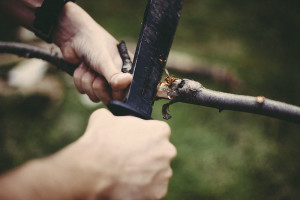Becoming a Survivalist: Your Guide to Self-Reliance

The word “survivalist” evokes images of rugged individuals navigating desolate landscapes, but becoming one doesn’t have to be an all-or-nothing leap. It’s about acquiring skills and knowledge that empower you to handle diverse situations, be it a power outage or a more extreme scenario. Whether you’re drawn to the wilderness or want to feel prepared for anything, here’s your roadmap to becoming a self-reliant survivalist:

1. Mindset Matters:

- Develop a positive attitude: Belief in your own abilities is crucial. You need to be resourceful and optimistic, even in challenging situations.
- Embrace adaptability: Flexibility is key. Be ready to adjust your plans and improvise solutions based on circumstances.
- Practice calmness: Panic clouds judgment. Learn to stay calm under pressure and think clearly to make the best decisions.
2. Build Essential Skills:
- Master the basics: Focus on skills like fire-making, water purification, shelter building, and first aid. These form the foundation of survival in any environment.
- Expand your knowledge: Learn to identify edible plants, navigate using natural landmarks, signal for help, and basic animal trapping or hunting techniques (depending on local regulations).
- Don’t neglect the everyday: Hone practical skills like basic carpentry, sewing, and cooking. They’ll be invaluable in maintaining comfort and well-being.
3. Gear Up Wisely:
- Invest in a good survival kit: Pack essentials like a compass, knife, fire starter, first-aid kit, and water purification tablets. Choose items based on your local environment and potential scenarios.
- Build your emergency supplies: Stock up on non-perishable food, water, medication, and sanitation items. Tailor your supplies to your family’s needs and the duration you want to be prepared for.
- Maintain and practice: Regularly check your gear, replace expired items, and practice using your skills. Familiarity breeds confidence.
4. Practice and Experience:
- Take workshops and classes: Learn from experienced instructors and gain hands-on practice in controlled environments.
- Go camping and hiking: Immerse yourself in nature and test your skills in a low-risk setting. Gradually increase the difficulty as you gain confidence.
- Join survivalist groups and communities: Connect with like-minded individuals, share knowledge, and participate in organized skills challenges.
5. Remember:
- Survivalism is a journey, not a destination: Continuously learn, adapt, and refine your skills. There’s always something new to discover.
- Community is key: Don’t go it alone. Building a network of supportive individuals can be invaluable in real-world situations.
- Respect the environment: Responsible actions today create a more resilient future for everyone.
Becoming a survivalist isn’t about living in fear of the unknown; it’s about empowering yourself to handle anything life throws your way. By developing a resilient mindset, honing practical skills, and practicing regularly, you can build confidence and self-reliance, whether facing minor inconveniences or navigating more challenging situations. So, take the first step today, and remember, the road to becoming a survivalist starts with a single, determined step.










